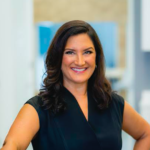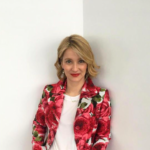When Shalane Flanagan won the TCS New York City Marathon last year, she became the first American woman to win the women’s race in four decades. “I had dreamed of a moment like that since I was a little girl. I imagined what it would feel like, but it exceeded my expectations and dream! It felt incredible, pure joy and validation for persevering through all the lows to achieve my goal,” she says.
Flanagan is also a four-time Olympian, Olympic silver medalist, World Cross Country Bronze medalist and co-author of The New York Times bestselling cookbook, Run Fast. Eat Slow. Although there was speculation that she would retire as a competitive runner after her victory, Flanagan told The New York Times that she would be running the 2018 New York City Marathon. With the race a few months away, I spoke to Flanagan about running, mentorship, coaching and overcoming setbacks.

What is it like to be a professional runner? What is a typical day like for you?
A professional runner is a lifestyle. It’s not your typical 9-5 job. I am “working” seven days a week and consciously making daily decisions that allow me to prepare and recover from my training. A typical day starts at 6 a.m., eat breakfast, run 80 minutes, gym and core work, lunch, nap for an hour, therapy session, then an evening run of 30-60 minutes, dinner and to bed at 9 p.m.
What is your process of training for a big race like the New York City Marathon?
When I’m preparing for a marathon, I typically run twice a day except for long run days, usually totaling 100 to 130 miles a week. And I follow a diet of healthy natural foods. I’ve found one of the most important things when training is to have balance. After a particularly challenging training session, I like to celebrate with a good beer and a burger. This year I’m coaching Michelob ULTRA’s team of 95 runners as they prepare for the 2018 TCS New York City Marathon, so I’ll be sharing a lot of my training tips with them along the way. I definitely think finding time to relax with other runners who are sharing the process with you is part of the training, so we’ll be working hard, but also having fun and toasting over Michelob ULTRAs together in the coming months.
The New York Times called your mentorship of professional athletes “The Shalane Flanagan Effect.”How has being a mentor and mentoring others shaped your career?
Patience. I wish at times I would have been more patient with myself and my progress. I learned you can’t rush fitness and that it has to naturally evolve.
What is the best advice you’ve ever received?
What is your career advice for other young professional women?
Be gritty. Patience and perseverance always pay off. Surround yourself with exceptional people who support you and your goals.































